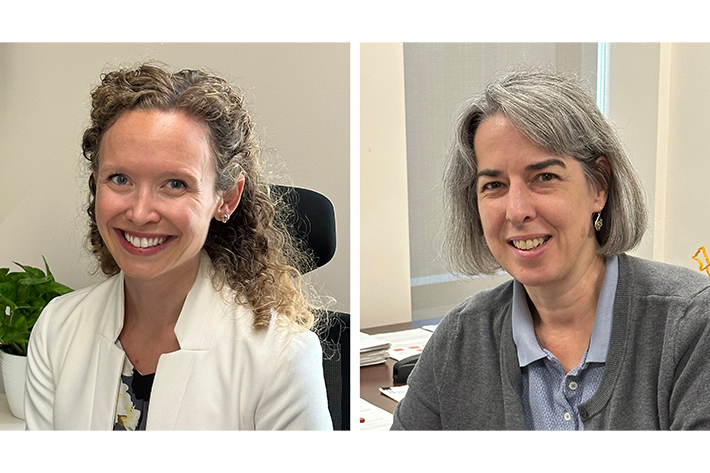CEMS welcomes new faculty members

The Department is pleased to welcome Associate Professor Kelsey Stoerzinger and Professor Lynn Walker as new faculty members!
Stoerzinger held a tenure-track assistant professor position at Oregon State University prior to joining CEMS. Her research program designs materials and processes for the storage of renewable electricity and its use in upgrading carbon feedstocks, conversion of waste to fertilizer, and distributed chemical production. Specifically, her group develops catalysts that facilitate these reactions in an efficient and selective manner, designing for stability and leveraging earth abundant transition metals when possible. These materials can enable transformative approaches to producing chemicals and storing energy for a sustainable future.
The collaborative integration of chemical engineering and materials science in the department is the ideal home for Stoerzinger’s research. She said, “I look forward to new opportunities to work together in developing solutions to big problems in energy security and responsible resource recovery. CEMS is such an inspiring and caring community that I’m thrilled to become a part of. I’m enthusiastic to join in their efforts towards creating a more equitable and inclusive educational and research environment, and being intentional in how to best serve our educational mission.”
Walker comes to CEMS from Carnegie Mellon University. Her research focuses on understanding and controlling complex, or structured, fluids in engineering applications. They use a wide range of experimental techniques to characterize the nano- through micro-scale structure of soft materials in non-equilibrium environments. Problems and materials of interest have included polymer blends, liquid crystalline polymers, interfacially dominated materials (emulsions and foams), self-assembled polymeric and surfactant systems, and colloidal dispersions. Walker’s current focus is on developing systematic methods for reformulating complex fluids, with the goal of facilitating and accelerating the incorporation of sustainable materials in formulated products. This effort will require fundamental engineering concepts, data science, novel characterization tools, and deep knowledge of colloid and polymer physics and chemistry.
Walker said, “With the strong connection to industry, CEMS and the University of Minnesota are the ideal place for me to pursue this direction, so I am extremely happy to be here. My research and interests sit at the interface between chemical engineering and materials science, and I am glad to be in a department that integrates the two fields so thoroughly. I am looking forward to being part of this department with its reputation of excellence, rigor, emphasis on fundamentals, collaboration, and collegiality.”